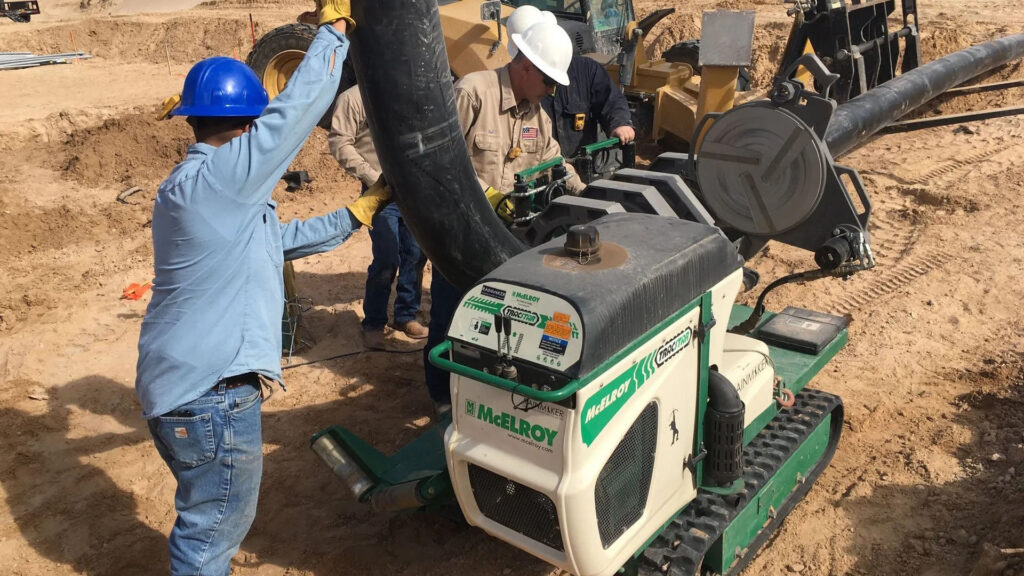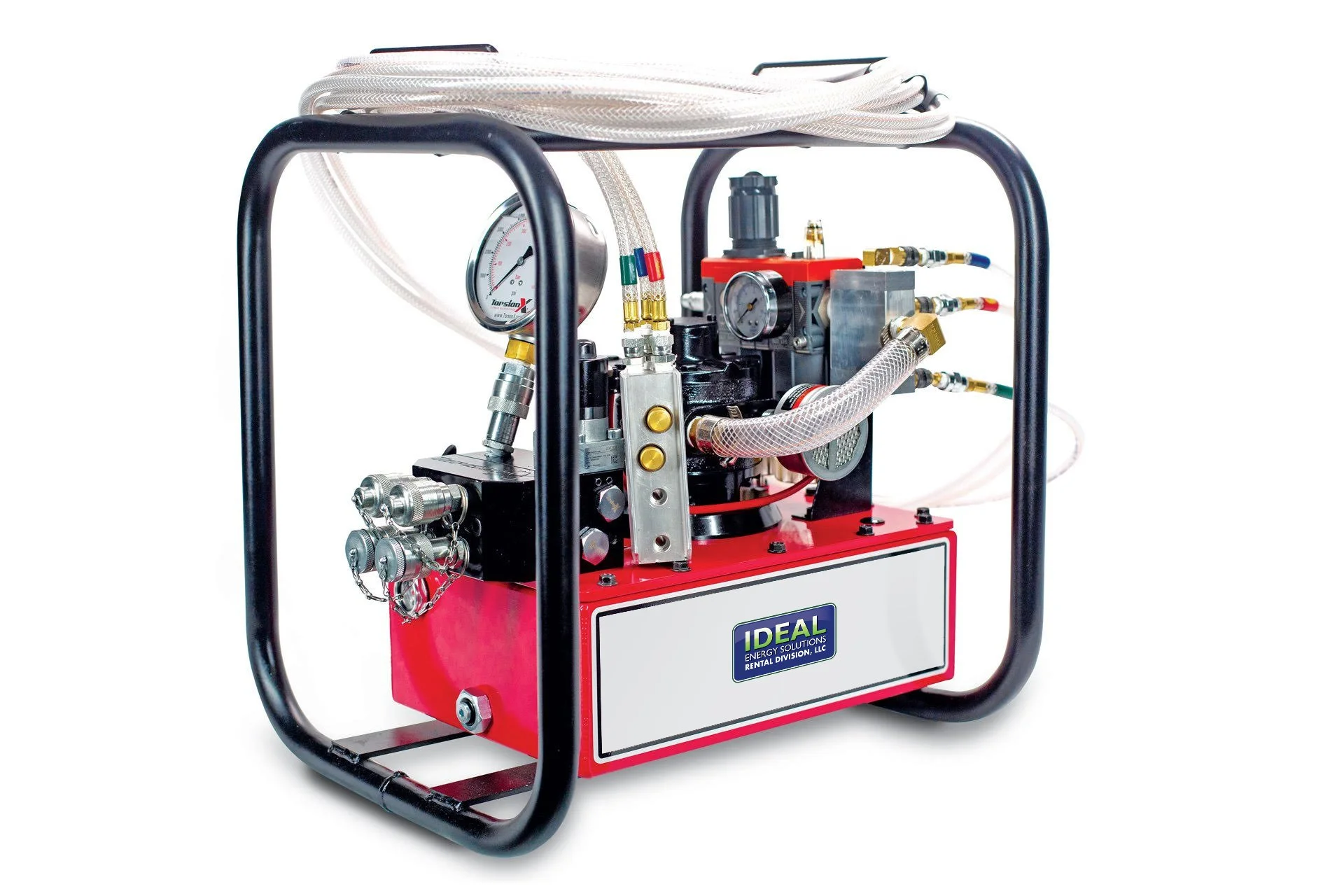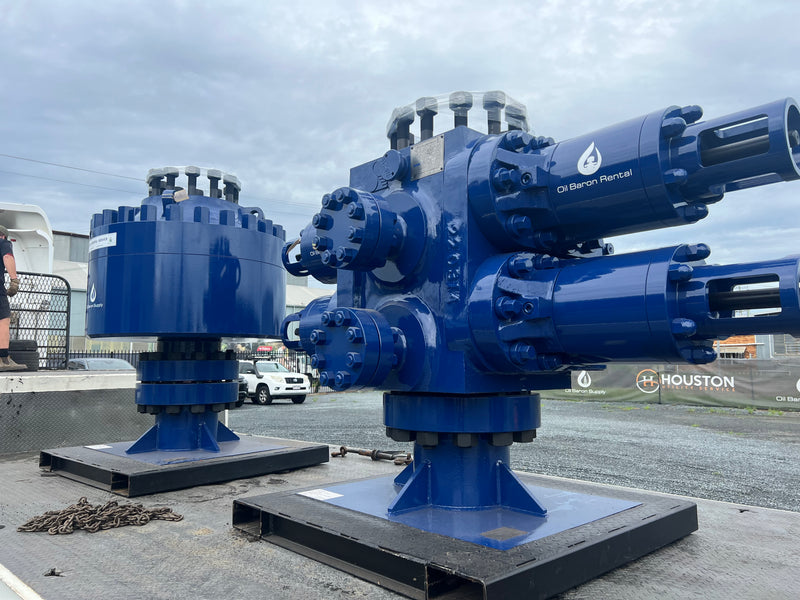Superior rentals squeeze tools: when to use them
Wiki Article
A Comprehensive Overview to the Various Sorts Of Oil Field Equipment and Pipeline Equipment Available
The oil and gas industry depends heavily on customized devices for reliable extraction and transportation. Different kinds of machinery, from drilling rigs to storage containers, play essential roles in this complex process. Each tool offers distinctive functions that add to general functional success. Comprehending these parts is necessary for any person involved in the industry. As the market progresses, so also do the technologies that sustain it. What advancements are on the horizon?
Drilling Rigs: The Backbone of Oil Expedition
Drilling rigs offer as the essential equipment in the domain of oil exploration, allowing companies to accessibility hydrocarbon books hidden deep underneath the Earth's surface. These rigs can be found in various types, consisting of land rigs, offshore rigs, and mobile units, each designed to operate in specific atmospheres. Geared up with sophisticated technology, piercing rigs can penetrate geological developments with precision, making sure efficient resource removal. The structural stability and operational abilities of these rigs are crucial, as they have to endure severe problems and considerable stress. The choice of a boring gear influences the total project expense and timeline, making it a crucial factor to consider for oil companies seeking to enhance their exploration efforts and make best use of performance in their procedures.Pumps: Important for Liquid Activity
In the oil removal process, the role of pumps is considerable, assisting in the activity of liquids throughout numerous phases of production. Pumps are important for delivering petroleum, water, and various other fluids from below ground storage tanks to the surface area and after that via pipes to refineries. They are available in numerous kinds, including centrifugal, positive displacement, and submersible pumps, each serving specific purposes based on the fluid qualities and operational demands. Centrifugal pumps are typically utilized for their effectiveness in high-flow applications, while positive displacement pumps master taking care of thick liquids. The selection of pump influences general effectiveness, operational safety, and upkeep expenses. Appropriate selection and upkeep of pumps are vital for maximizing manufacturing and lessening downtime in oil field operations.Valves: Managing Flow and Pressure

Shutoffs play a crucial function in managing the flow and stress of fluids within oil fields and pipes. Different types of shutoffs serve distinct applications, each made to satisfy details functions essential for efficient operation - Superior rentals squeeze tools. Understanding the attributes and uses of these valves is necessary for maximizing system performance and security
Sorts of Valves
Essential components in oil field operations, valves play a critical role in controlling the flow and pressure of liquids within pipes and tools. Numerous types of shutoffs are used to meet the diverse demands of oil and gas manufacturing. Typical types consist of entrance valves, which supply a straight-line circulation and marginal stress decline; world shutoffs, known for their throttling capabilities; and ball valves, acknowledged for their fast on/off control. Furthermore, check shutoffs stop heartburn, while butterfly shutoffs use a light-weight remedy for managing circulation. Each shutoff kind is made with details products and arrangements to hold up against the rough problems usually located in oil areas, ensuring reliability and efficiency in procedures. Recognizing these kinds is important for efficient system administration.Valve Applications and Functions
While numerous kinds of valves serve unique purposes, their primary applications focus on managing flow and pressure within oil and gas systems. Shutoffs such as entrance, globe, and ball shutoffs manage fluid movement, ensuring peak efficiency and security. Gate shutoffs are frequently used for on/off control, providing marginal circulation resistance. World valves, on the various other hand, offer specific circulation policy, making them suitable for strangling applications. Ball shutoffs are favored for their fast procedure and tight securing capabilities. Additionally, pressure safety valve are crucial for protecting against system overpressure, securing equipment stability. Overall, the ideal choice and application of valves enhance operational performance, making sure the reputable transportation of oil and gas through pipes and processing centers.Compressors: Enhancing Gas Transport
Compressors play a crucial function in the reliable transport of gas, ensuring that it relocates smoothly via pipelines over fars away. These devices boost the stress of all-natural gas, allowing it to get over friction and altitude changes within the pipeline system. In addition, compressors assist in the harmonizing of supply and demand, suiting changes in intake and production prices. Numerous sorts of compressors are utilized in the sector, including centrifugal, reciprocating, and rotary screw compressors, each offering unique benefits based upon the operational requirements. Routine upkeep of these compressors is vital to make the most of effectiveness and decrease downtime, inevitably contributing to a reputable gas transport network. Their important function emphasizes the importance of compressors in the overall oil and gas facilities.Storage Tanks: Safe and Effective Fluid Administration
Reliable transportation of all-natural gas relies upon numerous support group, among which is the correct monitoring of storage space click site containers. These containers play an important role in safely containing fluids, guaranteeing that functional performance is kept while decreasing ecological threats. Built from long lasting materials, they are developed to stand up to high pressures and corrosive elements. Correctly sized and strategically situated, storage space tanks help with the smooth flow of all-natural gas and various other fluids, avoiding traffic jams in supply chains. Normal maintenance and monitoring are vital to discover leaks or architectural problems, promoting safety and security and conformity with regulative requirements. Ultimately, the reliable administration of storage containers is important for the general integrity and integrity of the oil and gas market's fluid handling systems.
Pipeline Equipments: Infrastructure for Transportation
Pipeline systems work as the foundation of the oil and gas market, helping with the effective transport of hydrocarbons over huge distances. These systems contain different components, consisting of pipelines, valves, pumps, and compressors, all thoroughly created to ensure seamless flow. The materials utilized in pipeline construction, usually steel or high-density polyethylene, are selected for durability and resistance to rust. Pipeline networks can cover throughout land and water, connecting production websites to refineries and distribution. Furthermore, progressed technology allows real-time monitoring of circulation prices and stress levels, improving functional efficiency. The calculated positioning of these pipelines reduces ecological influence while taking full advantage of source ease of access, consequently playing an essential function in conference power needs globally.Security Equipment: Making Sure Employee and Environmental Security
The procedure of pipeline systems, while essential for energy transportation, likewise provides substantial safety and security obstacles for workers and the atmosphere. Safety and security equipment plays a considerable duty in minimizing these risks. Personal safety tools (PPE) such as helmets, gloves, and non-slip footwear safeguards workers from physical threats. In addition, gas detection systems keep an eye on for leaks, making certain that harmful substances do not posture a threat to workers or the bordering ecosystem. Emergency situation closure systems are imperative for quickly halting procedures throughout a crisis, avoiding prospective disasters. Spill control products, consisting of absorbents and obstacles, are fundamental for lessening environmental impact. Generally, purchasing all-inclusive security devices is crucial for preserving functional integrity and shielding both workers and the atmosphere in the oil and gas industry.
Often Asked Inquiries
Exactly how Do I Pick the Right Oil Field Equipment for My Task?
Choosing the ideal oil area equipment includes reviewing project specs, budget plan restraints, and functional requirements. Think backhoe attachments for tractors about aspects such as tools reliability, compatibility with existing systems, and the provider's track record to assure peak efficiency and safety.What Are the Maintenance Needs for Oil Field Equipment?
Maintenance requirements for oil field equipment include routine assessments, lubrication, and prompt fixings. Operators needs to also comply with producer guidelines, monitor performance metrics, and guarantee compliance with safety regulations to enhance longevity and efficiency.
Exactly How Can I Make Sure Compliance With Environmental Regulations?
To assure conformity with ecological policies, firms have to conduct routine audits, carry out ideal practices, buy training, keep appropriate documentation, and remain updated on regulation (Superior Rentals near me). Collaboration with environmental agencies can try this site additionally enhance adherence to guidelinesWhat Is the Ordinary Lifespan of Pipeline Equipment?
The typical life-span of pipeline equipment commonly ranges from 20 to 50 years, relying on variables such as material high quality, ecological problems, and maintenance practices. Routine examinations can significantly influence durability and functional performance.How Do I Safely Deliver Oil Field Equipment to Remote Locations?
Transporting oil field devices to remote areas calls for careful planning, including path evaluation, protecting authorizations, making use of ideal vehicles, and guaranteeing safety and security protocols are complied with. Correct training and interaction amongst staffs are essential for effective transport.Report this wiki page